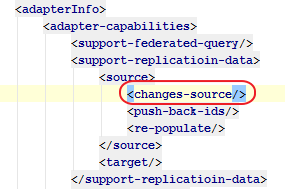Searching the Help
To search for information in the Help, type a word or phrase in the Search box. When you enter a group of words, OR is inferred. You can use Boolean operators to refine your search.
Results returned are case insensitive. However, results ranking takes case into account and assigns higher scores to case matches. Therefore, a search for "cats" followed by a search for "Cats" would return the same number of Help topics, but the order in which the topics are listed would be different.
| Search for | Example | Results |
|---|---|---|
| A single word | cat
|
Topics that contain the word "cat". You will also find its grammatical variations, such as "cats". |
|
A phrase. You can specify that the search results contain a specific phrase. |
"cat food" (quotation marks) |
Topics that contain the literal phrase "cat food" and all its grammatical variations. Without the quotation marks, the query is equivalent to specifying an OR operator, which finds topics with one of the individual words instead of the phrase. |
| Search for | Operator | Example |
|---|---|---|
|
Two or more words in the same topic |
|
|
| Either word in a topic |
|
|
| Topics that do not contain a specific word or phrase |
|
|
| Topics that contain one string and do not contain another | ^ (caret) |
cat ^ mouse
|
| A combination of search types | ( ) parentheses |
|
Population Adapter Modes
The UCMDB Adapter Framework allows two types of population adapters:
-
Standard Population Adapter
- Is characterized by the absence of the <changes-source/> tag in the adapter XML file
- Will always bring the full query data from the external system. In this case, the UCMDB Probe Framework is responsible for determining the difference between two consecutive runs. The Probe Framework achieves this by comparing the previous result for the given query with the current result, and computing the differences. Full population is achieved by not comparing the current query result and treating it as the final result. This flow implies that the populated data is not filtered by a “from date”, because filtering by a date would render data comparison meaningless.
-
changes-source Population Adapter
-
Is configured by the use of the <changes-source/> tag in the adapter XML file:

-
The changes-source adapter is responsible for computing the difference between two consecutive runs.
-
If you are using a changes-source population adapter, your adapter is responsible for explicitly deleting CIs. This is done by using the is-deleted mapping file XML attribute, which accepts a valid Groovy expression.
For example, in the mapping file shown below, the population connector returns Service instances. Although the instances are still valid, some CIs that were part of those Service instances were deleted. To signal the delete of those CIs, you need to use the is-deleted attribute on the BusinessService mapping.

We welcome your comments!
To open the configured email client on this computer, open an email window.
Otherwise, copy the information below to a web mail client, and send this email to cms-doc@microfocus.com.
Help Topic ID:
Product:
Topic Title:
Feedback:





